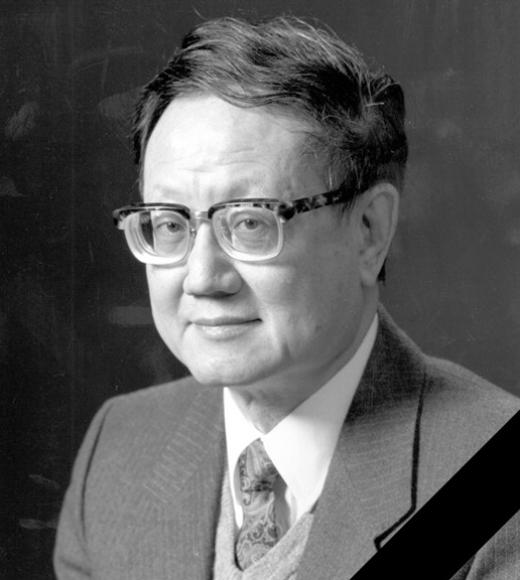
Position Title
In Memoriam
Professor Emeritus of Vegetable Crops
1932-2007
SHANG-FA YANG
Birth: November 10, 1932, Tainan, Taiwan
Death: February 12, 2007, Davis, California
Education
- B.S., Agricultural Chemistry, National Taiwan University, 1956
- M.S., Agricultural Chemistry, National Taiwan University, 1958
- Ph.D., Plant Biochemistry, Utah State University, 1962
Employment
- Postdoctoral Researcher, University of California, Davis
- Postdoctoral Fellow, New York University Medical School
- Postdoctoral Researcher, Scripps Institution of Oceanography
- Assistant Biochemist, Department of Vegetable Crops, UC Davis, 1966
- Professor, UC Davis, 1966–1994
- Distinguished Professor, Hong Kong University of Science and Technology, 1994–1997
- Distinguished Research Fellow and Director, Institute of Botany, Academia Sinica, 1995–1996
- Vice President, Academia Sinica, 1996–1999
Honors, Awards, and Professional Societies
- Campbell Award, American Institute of Biological Sciences, 1969
- Guggenheim Fellowship, 1982
- International Plant Growth Substances Association Research Award, 1985
- Outstanding Researcher Award, American Society for Horticultural Science, 1992
- Faculty Research Lecturer, UC Davis, 1992
- Elected Member, National Academy of Sciences, USA, 1990
- Elected Member, Academia Sinica, Taiwan, 1992
- Wolf Prize in Agriculture, 1991
Research Contributions and Impact
Shang-Fa Yang was one of the most influential plant biochemists of the 20th century, best known for elucidating the biochemical pathway of ethylene biosynthesis. This key plant hormone regulates processes including seed germination, fruit ripening, senescence, and stress responses. Yang’s pioneering work identified the conversion of methionine to ethylene and established S-adenosylmethionine (SAM) as a critical intermediate. In 1979, he and his collaborators discovered 1-aminocyclopropane-1-carboxylic acid (ACC) as the final precursor to ethylene.
Yang’s group further discovered the recycling pathway for methionine regeneration, now known as the “Yang Cycle,” which resolved a major biochemical mystery and became a cornerstone of plant physiology. His research extended to the cloning and characterization of key enzymes such as ACC synthase and ACC oxidase, revealing how environmental conditions and developmental cues regulate ethylene production.
Yang’s work had profound practical applications, including postharvest storage innovations and the development of ethylene inhibitors to extend the shelf life of fruits, vegetables, and flowers. His discoveries underpin much of today’s plant hormone science and agricultural biotechnology.
Publications and Scholarly Leadership
Yang published more than 225 research papers and numerous book chapters, many of which remain highly cited in plant biology. He served on the editorial boards of leading journals and was deeply involved in international plant science organizations.
Teaching and Mentorship
Yang was known for his rigorous yet supportive mentorship, which shaped the careers of many leading plant scientists. His teaching emphasized critical thinking, experimental design, and the integration of fundamental biochemistry with applied plant science.
Collaboration and Community
Yang’s influence extended far beyond the laboratory. He helped establish international collaborations and played a pivotal role in fostering scientific exchange between the United States and Taiwan. His leadership at Academia Sinica included founding new research institutes and launching the National Science and Technology Program for Agricultural Biotechnology.
Legacy
Yang’s pioneering research transformed the understanding of plant hormone biosynthesis and regulation. The discovery of ACC, the Yang Cycle, and key enzymes in ethylene biosynthesis are foundational to modern plant biology. His work not only shaped scientific knowledge but also revolutionized agricultural practices worldwide. The Shang-Fa and Eleanor Yang Scholarly Exchange Endowment, established after his death, continues his legacy by supporting scientific collaboration between UC Davis and Academia Sinica.
References
For additional tributes, interviews, and biographies, see the following resources:
